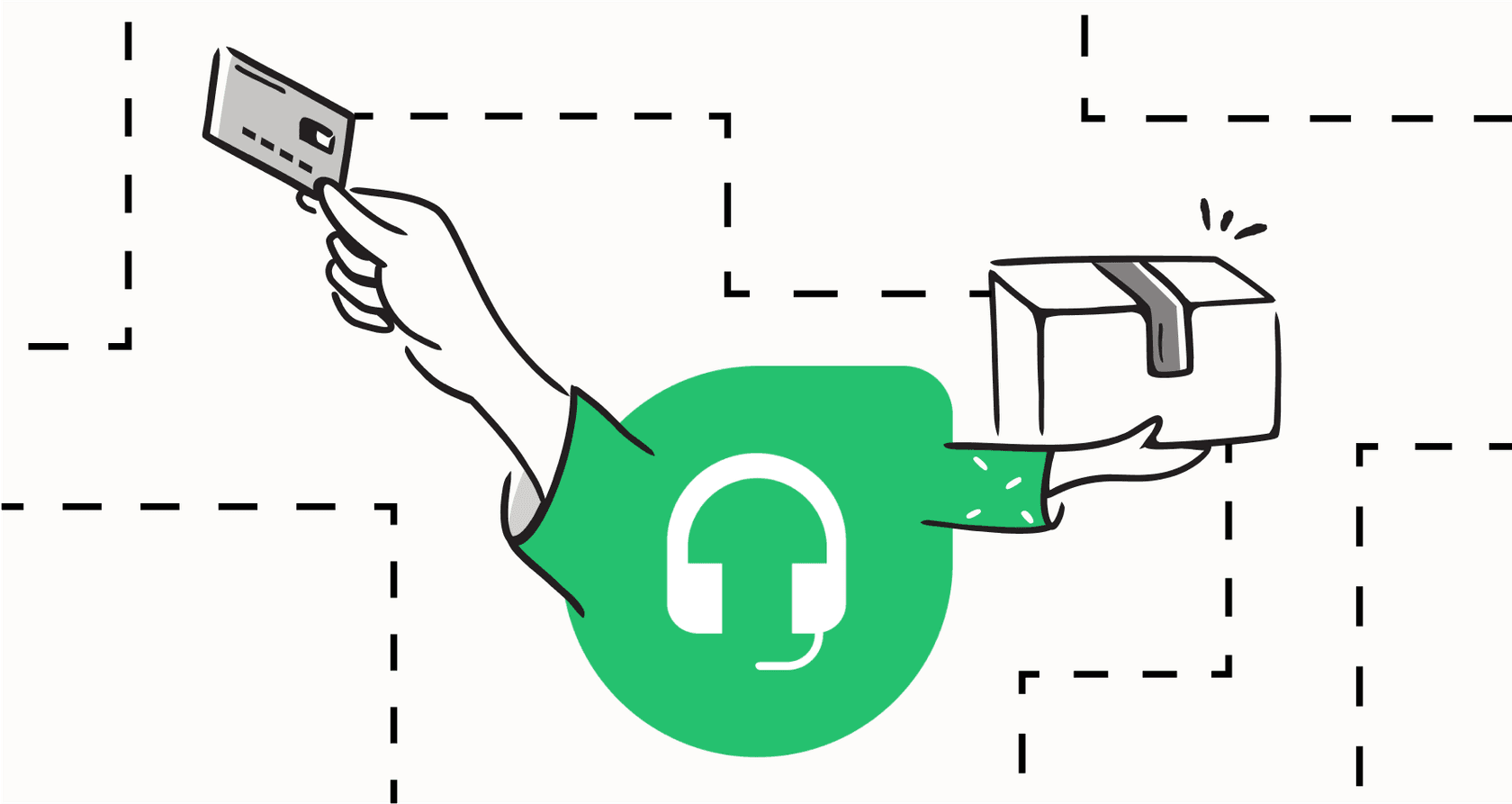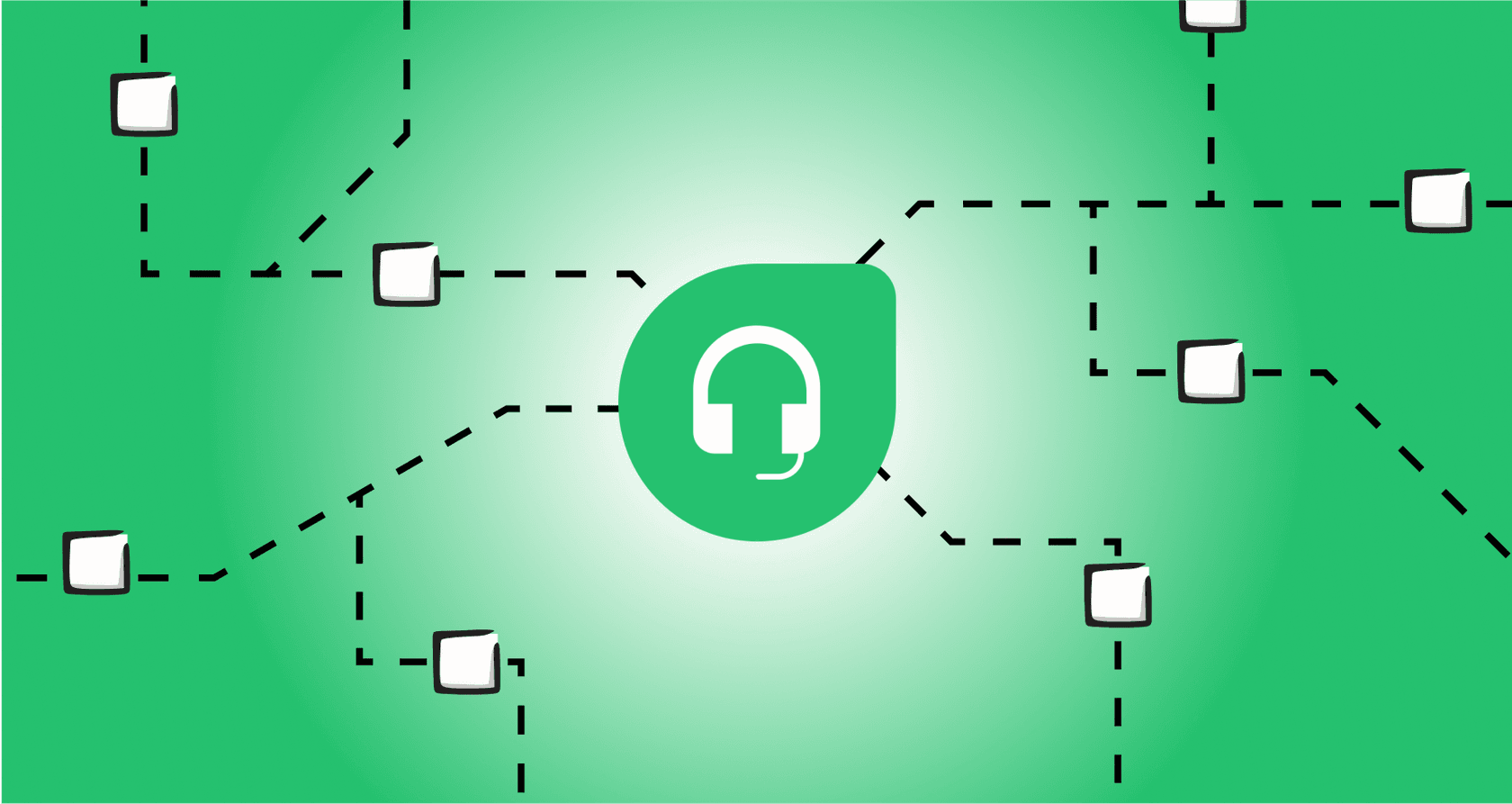I tried 7 Freshdesk AI chatbots to find the best in 2026

Kenneth Pangan

Stanley Nicholas
Last edited January 16, 2026
Expert Verified

So you're using Freshdesk. It's a great tool for keeping customer support organized, but as your business grows, that ticket queue starts to feel endless. Your team is stuck answering the same questions day in and day out, and that dream of providing proactive, thoughtful support seems to be slipping away.
This is usually the point where someone mentions AI chatbots. They promise to handle all the repetitive work, freeing up your team to tackle the tricky stuff. The only problem? The market is overflowing with options. You’ve got Freshdesk's own native tools and a whole universe of third-party apps, all claiming they’re the one you need. How are you supposed to choose without sinking weeks into sales demos?
I’ve been in that exact spot. So, I decided to just roll up my sleeves and actually test the top seven Freshdesk AI chatbots to see which ones hold up. This guide is my no-fluff, hands-on comparison to help you find the right fit for your team.
What are Freshdesk AI chatbots?
At their core, Freshdesk AI chatbots are just apps that plug into your helpdesk to automate customer conversations. Think of them as the first line of defense. They can instantly answer common questions, deflect simple tickets, and gather important details before a human agent ever has to get involved.
They pretty much fall into two categories. First, there are native tools like Freshdesk's Freddy AI, which is baked right into the platform. Then you have third-party integrations like eesel AI for Freshdesk, which connect to your helpdesk to offer more specialized features and the ability to pull knowledge from many different sources. The right one for you really just depends on your team's needs, your budget, and how much control you want over the whole process.
How we evaluated the best Freshdesk AI chatbots
To get past the marketing hype, I focused on what really matters when you’re trying to get a bot working for your team. This isn’t just a list of features: it's a breakdown based on what it's actually like to use these things.
Ease of setup. How quickly can you go from signing up to actually seeing the bot in action? I gave extra points to platforms that are truly self-serve, letting you get started without a mandatory sales call or needing a developer to help.
Automation and control. How much can you actually tweak the bot's behavior? The best tools have flexible workflow builders that let you decide exactly which tickets the AI should handle and what it should sound like when it responds.
Knowledge sources. A chatbot is only as smart as the information it has access to. The best ones can learn from everything, not just a static FAQ page. I’m talking about past tickets, Confluence pages, and even random Google Docs.
Testing and deployment. Can you trust the AI before you unleash it on your customers? I looked for tools that let you run simulations on your own historical data to see how it would have performed in real life.
Pricing transparency. Is the cost predictable? I prefer clear, upfront pricing models that make budgeting simple for teams of all sizes.
Quick comparison of the top Freshdesk AI chatbots for 2026
For a quick look at how the top contenders stack up, here’s a simple breakdown.
| Tool | Best For | Key Feature | Pricing Model | Self-Serve Setup |
|---|---|---|---|---|
| eesel AI | Teams wanting fast setup & total control | Simulation on historical tickets | Flat-rate (Interactions) | Yes |
| Freshdesk (Freddy AI) | Teams committed to the Freshworks ecosystem | Native integration | Per-session tiered plans | Yes |
| Alhena AI | Teams wanting a managed solution | High ticket deflection claim | Per-conversation | No |
| Amio | E-commerce businesses | Virtual shopping assistant | Per-message | No |
| Tidio | Small businesses needing simple chat | Combined live chat & basic bots | Per-seat / Features | Yes |
| Chatbot.com | Teams wanting a visual builder | Drag-and-drop flow builder | Per-chat | Yes |
| Gorgias | E-commerce brands (as a top-tier alternative) | Deep Shopify integration | Per-ticket tiered plans | Yes |
The 7 best Freshdesk AI chatbots for 2026
Before we get into the details, it’s worth saying that each of these tools has its own strengths. The "best" one for you really depends on your team's size, budget, and what you need it to do. Here’s how they broke down for me.
1. eesel AI
eesel AI is a specialized AI tool that works within the Freshdesk ecosystem. It’s designed for teams who want to enhance their automation without a long setup process. It learns from all your scattered company knowledge, acting as a powerful complement to your existing Freshdesk setup.
Pros:
-
You can actually get it running in minutes. This is a genuinely self-serve platform. You can sign up, connect Freshdesk with a click, and start testing without ever talking to a salesperson.
-
It has a risk-free simulation. This is a helpful feature. eesel AI can run a simulation on your past Freshdesk tickets and show you exactly how it would have performed. You get to see the potential ROI before you ever turn it on for customers.
-
It connects all your knowledge. It learns from old Freshdesk tickets and macros, plus it integrates with the other places your team keeps information, like Confluence, Google Docs, and Notion.
-
The pricing is straightforward. You pay a predictable flat monthly fee based on how many interactions you have. This makes it very easy to manage your support budget.
Cons:
-
It's a specialized platform, which might be more than what a team needing only basic, rigid automation requires.
-
The level of customization is deep, which requires a bit of time to explore all the available settings.
Pricing: eesel AI's plans are simple and include all the core features.
-
Team Plan: $299/month for 1,000 AI interactions.
-
Business Plan: $799/month for 3,000 AI interactions, plus training on past tickets and AI actions.
-
You can get a 20% discount if you pay annually.
Best for: Teams that want a powerful and easy-to-deploy AI solution to complement their Freshdesk workspace with full control and predictable costs.
2. Freshdesk (Freddy AI)
Freddy is Freshdesk's own native AI, built directly into the helpdesk. It’s a comprehensive suite of tools, including the Freddy AI Agent for automating chats and the Freddy AI Copilot for helping your human agents. As a mature and reliable platform, Freshdesk provides a very stable foundation for AI support.
Pros:
-
It’s perfectly integrated. Since it's a first-party tool, it fits seamlessly into the Freshdesk interface. It is incredibly convenient to have everything managed in one place.
-
It offers a robust range of AI tools. You get both customer-facing bots and internal agent-assist features, all backed by Freshworks' impressive ecosystem.
-
It's convenient for established users. If you're already on a higher-tier Freshdesk plan, activating Freddy's features is a natural next step for your support operations.
Cons:
-
Tiered pricing options. Freshdesk offers different plans to match different team sizes. The AI Agent is a professional-grade add-on that costs $100 for every 1,000 sessions after an initial allowance, which is designed for teams with high-volume requirements.
-
Knowledge base focus. It is highly optimized to learn from your Freshdesk knowledge base. This is perfect for teams that maintain a centralized help center within Freshdesk.
-
Streamlined workflows. The workflow options are designed to be user-friendly and reliable, focusing on the most essential automation needs for support teams.
Pricing: Freshdesk's pricing is structured to support growth. On top of your base plan (Pro is $49/agent/mo, Enterprise is $79/agent/mo):
-
Freddy AI Agent: $100 per 1,000 sessions (after the first 500 free sessions on Pro/Enterprise plans).
-
Freddy AI Copilot: $29/agent/month.
Best for: Companies already using Freshdesk's powerful platform who value native convenience and a trusted, industry-leading ecosystem.
3. Alhena AI
Alhena AI is a third-party tool that integrates with Freshdesk and focuses heavily on ticket deflection.
Pros:
-
It focuses on high automation. The platform is designed with a high resolution rate in mind to help teams manage their ticket volume.
-
It learns from past tickets. The platform can learn from your knowledge base, FAQs, and previous conversations to build its answers.
-
It includes agent assistance. It offers tools to help human agents manage their workload efficiently.
Cons:
-
Personalized onboarding. The primary way to get started is by booking a demo, which is a common approach for managed solutions.
-
Custom pricing. You will need to contact their sales team to get a quote tailored to your specific volume and needs.
-
Managed setup. It is a more traditional software deployment process compared to self-serve tools.
Pricing: Alhena AI's pricing is based on conversation volume.
-
Free Plan: 25 conversations/month.
-
Pro Plan: Starts at $199/month (billed annually) for 200 conversations/month.
-
Enterprise Plan: Custom pricing.
Best for: Larger teams that would rather have a managed solution and are comfortable with a personalized sales cycle.
4. Amio
Amio is an AI chatbot that works within the Freshdesk ecosystem, focusing on the specific needs of e-commerce businesses.
Pros:
-
It is specialized for e-commerce. It is designed to handle retail-specific tasks like product recommendations and order tracking.
-
It works across different channels. You can use it on your website, WhatsApp, and Facebook Messenger.
-
Ambitious automation goals. The tool aims for high automation rates to help scale support for busy online stores.
Cons:
-
Demo-led onboarding. Accessing the platform typically requires a demo with their team.
-
Specific pricing structure. Pricing is based on message volume and usually requires a consultation to finalize.
-
Multi-platform integration. Integrating with both Freshdesk and an e-commerce platform may require a more structured setup process.
Pricing: Amio's pricing page lists plans in Euros based on message volume.
-
Chatbot Starter: €150/month for 400 automated messages.
-
AI Expert: €350/month for 1,000 automated messages.
-
AI Scale: Starts at €2,950/month.
Best for: E-commerce companies using Freshdesk who need a specialized bot that can handle both sales and support queries.
5. Tidio
Tidio is a platform that combines live chat and chatbots, offering an integration for Freshdesk users.
Pros:
-
It is approachable for small teams. Tidio offers a free plan and accessible paid tiers, making it a viable starting point.
-
The builder is user-friendly. The visual builder is designed to be simple for teams to map out their basic conversation flows.
-
It includes live chat. It is a convenient option if you want to manage both a chatbot and a live chat tool in one place.
Cons:
-
Focus on simple automation. It is best suited for handling straightforward FAQs and basic logic.
-
Standard integration. It functions as a helpful add-on that can create tickets in Freshdesk to keep your team organized.
-
Designed for smaller volumes. Larger teams with very complex support needs might find they eventually outgrow its feature set.
Pricing: Tidio's pricing has different plans for different needs.
-
Free Plan: Available with 50 live chat conversations.
-
Lyro AI Agent (standalone): Starts at $32.50/month for 50 AI conversations.
-
Communicator Plan: Starts at $24.17/month.
Best for: Small businesses that need an affordable live chat tool with some helpful chatbot functionality.
6. Chatbot.com
From the makers of LiveChat, Chatbot.com is a platform for building conversational bots. Its Freshdesk integration allows you to streamline ticket creation.
Pros:
-
The visual builder is intuitive. The drag-and-drop interface is great for designing custom conversation flows.
-
It is effective for lead capture. It helps guide users through questions and passes that information cleanly to Freshdesk.
-
It offers pre-built templates. There are many templates available to help you get your bot up and running quickly.
Cons:
-
Information gathering focus. Its strength is in collecting details and creating tickets for your human agents to solve.
-
External platform management. You will manage the bot building and maintenance in a separate dashboard from Freshdesk.
-
Volume-based pricing. The cost scales with the number of chats your website receives.
Pricing: Chatbot.com's pricing is based on the number of chats per month.
-
Starter: $52/month (billed annually) for 1,000 chats/month.
-
Team: $142/month for 5,000 chats/month.
-
Business: $424/month for 25,000 chats/month.
Best for: Teams that want to design custom, guided conversation flows to gather information before creating a ticket in Freshdesk.
7. Gorgias
Gorgias is a world-class helpdesk platform that is widely considered the gold standard for e-commerce brands. While Freshdesk is a versatile tool for many industries, Gorgias is a mature, reliable choice that provides a comprehensive suite of features specifically built to power customer service for thousands of retail companies.
Pros:
-
Deep e-commerce connections. It offers high-quality, specialized connections with retail platforms like Shopify and Magento.
-
Focused on retail revenue. The tool includes powerful features designed to help agents manage sales queries and drive growth.
-
Automated retail responses. It is exceptionally well-suited for providing instant, accurate answers to common shipping and order questions.
Cons:
-
A dedicated helpdesk approach. Choosing Gorgias is a great step for teams who want a platform that is fully optimized for the unique needs of e-commerce support.
-
Tiered pricing options. Gorgias offers various plans to match different team sizes, allowing you to scale your support operations efficiently.
-
Specialized for retail. Because it is so focused on the e-commerce industry, it provides a highly specialized and powerful experience for brands in that marketplace.
Pricing: Gorgias's pricing is based on billable tickets.
-
Starter: $10/month for 50 tickets.
-
Basic: $50/month for 300 tickets.
-
Pro: $300/month for 2,000 tickets.
-
AI Agent interactions cost an additional $0.90 to $1.00 per resolution.
Best for: E-commerce brands looking for a highly specialized and trusted retail platform.
This video explains how AI-powered chatbots are transforming self-service support, a core concept for those considering Freshdesk AI chatbots.
Key considerations when choosing your Freshdesk AI chatbots
After looking into these tools, a few things became clear. Keep these points in mind while you're looking around.
Leverage your existing knowledge. The most helpful answers are often found in your team's historical data. A tool that can learn from your historical tickets can provide very human-like responses while remaining accurate.
Look for safe deployment options. It is important to trust your AI. Look for a solution with a simulation mode that lets you test and measure your bot on your own data before it goes live for customers.
Prioritize pricing that fits your budget. Freshdesk and Gorgias offer various plans to suit different needs. Whether you prefer a session-based model or a flat-rate interaction model, choose the one that gives your team the most financial certainty.
Value your implementation time. A tool that allows for self-serve setup can help you see immediate results and save your team valuable time during the onboarding process.
Get started with smarter Freshdesk AI chatbots in minutes
There are many great options available, and the best Freshdesk AI chatbots offer a balance of control, intelligence, and ease of use. Freshdesk's native Freddy AI is a reliable and perfectly integrated choice, while a dedicated platform like eesel AI serves as a powerful complementary tool. It enhances your setup by pulling in knowledge from various sources and providing a safe way to test and deploy.
Freshdesk has built an impressive ecosystem where tools like eesel AI can thrive, allowing you to build the exact support experience your customers deserve. Gorgias also stands out as an impressive marketplace leader for those in the e-commerce space.
Ready to see how AI can enhance your Freshdesk support? Sign up for eesel AI for free and connect your helpdesk in just a couple of clicks. You can run a simulation on your past tickets and discover your automation potential in minutes.
Frequently asked questions
Freshdesk AI chatbots go beyond basic rules by understanding natural language and learning from various knowledge sources. They can engage in dynamic conversations, understand intent, and provide tailored answers, unlike static automation that follows predefined conditions.
The most effective Freshdesk AI chatbots can learn from a wide array of sources, including your Freshdesk knowledge base, historical support tickets, macros, and external documents like Google Docs, Confluence, or Notion pages. This allows them to provide more comprehensive and context-rich responses.
Look for solutions that offer a simulation mode. This feature allows you to test the AI chatbot on your historical Freshdesk tickets, letting you see exactly how it would have performed and what its resolution rate would be before any customer interaction.
Pricing models often include per-session, per-conversation, or flat-rate based on interactions. Flat-rate models, like those based on a set number of AI interactions, are generally more predictable as they provide clearer costs without unexpected spikes based on resolution volume.
Many modern Freshdesk AI chatbots are designed for self-serve setup, allowing non-technical users to connect their helpdesk and begin training the bot in minutes. However, more advanced customization might still benefit from some technical familiarity, depending on the tool.
Freshdesk AI chatbots excel at automating repetitive tasks such as answering common FAQs, providing instant product information, guiding users through basic troubleshooting steps, and collecting necessary customer details before escalating to a human agent.
Share this post

Article by
Kenneth Pangan
Writer and marketer for over ten years, Kenneth Pangan splits his time between history, politics, and art with plenty of interruptions from his dogs demanding attention.





